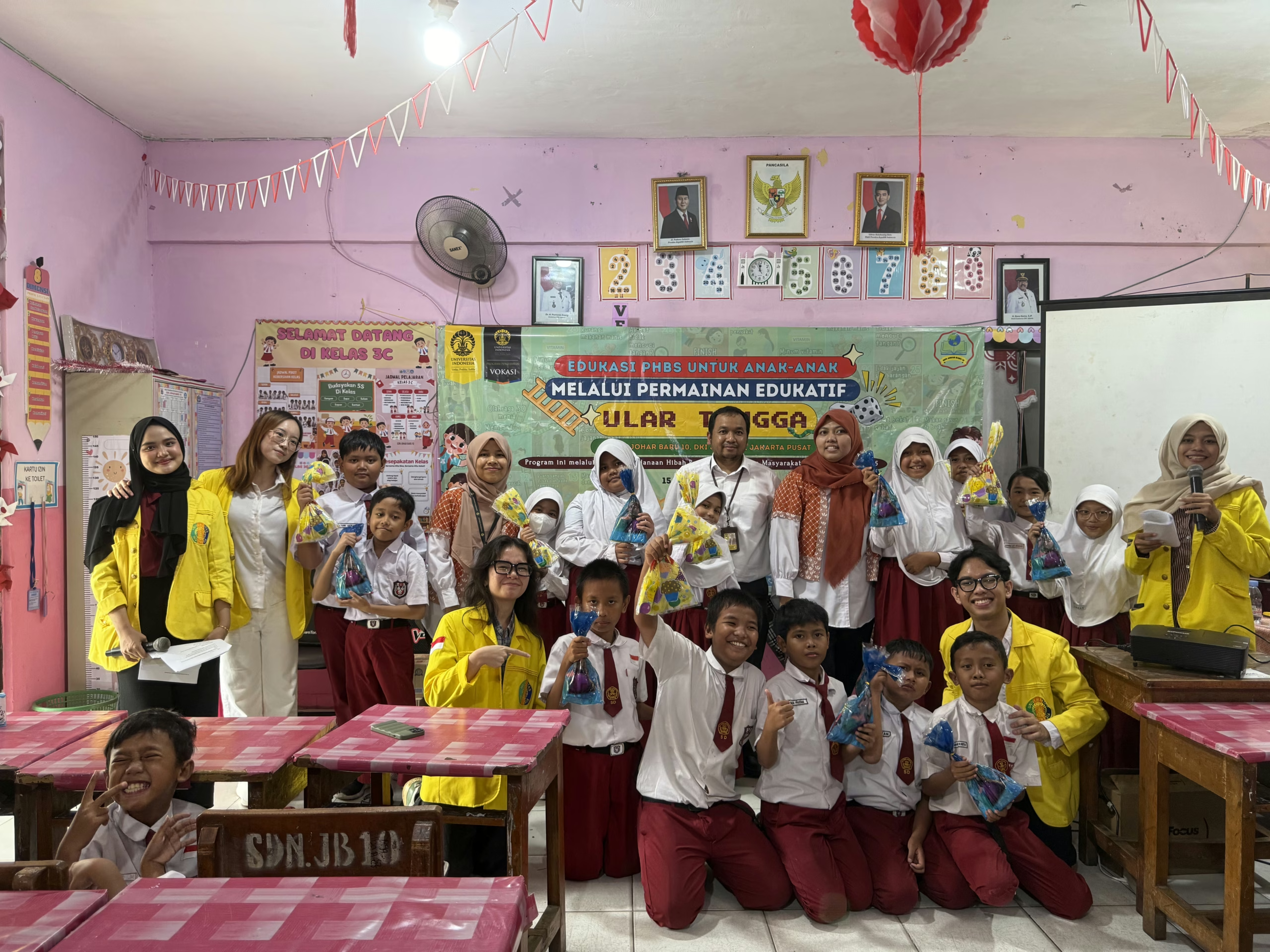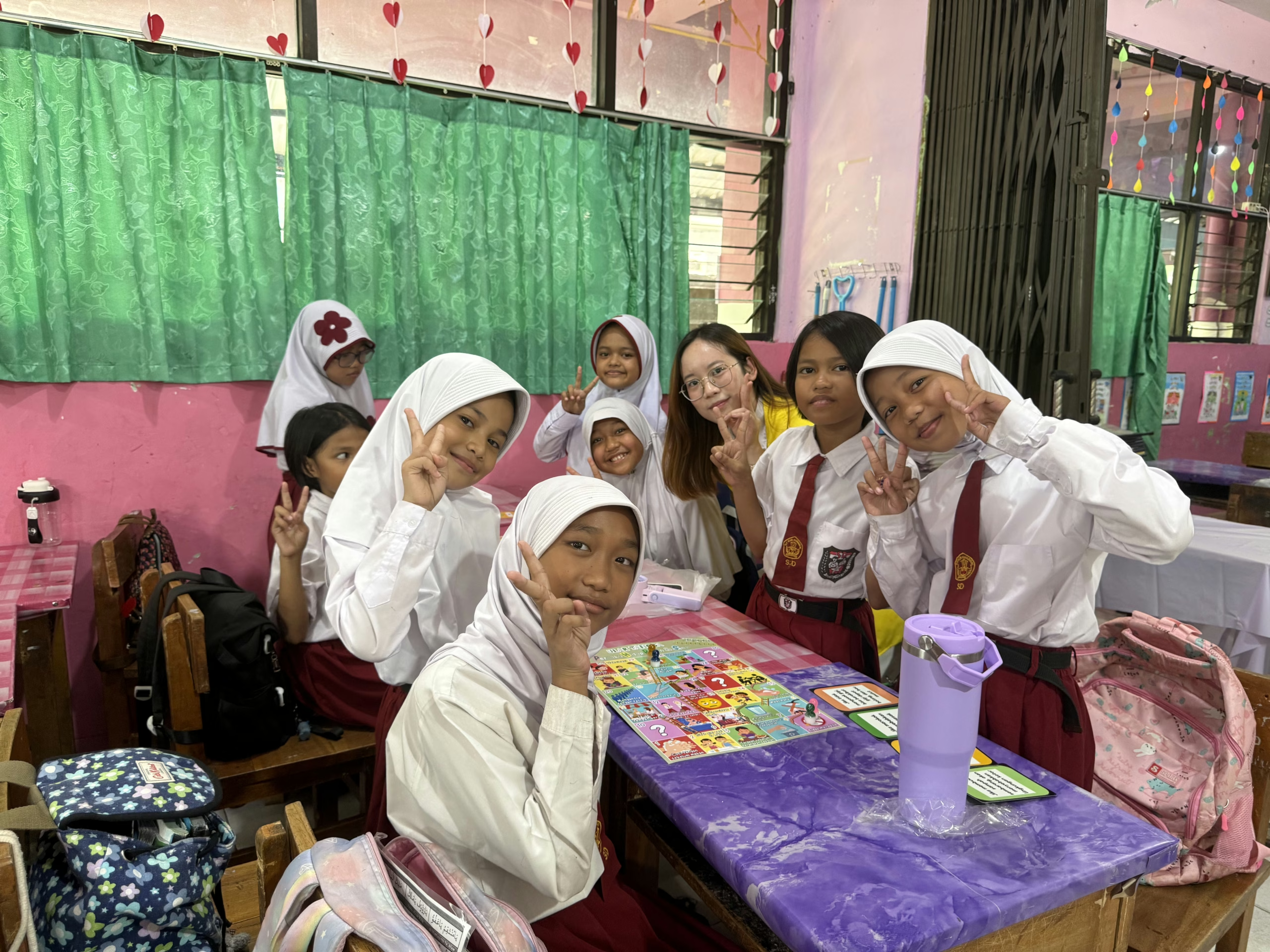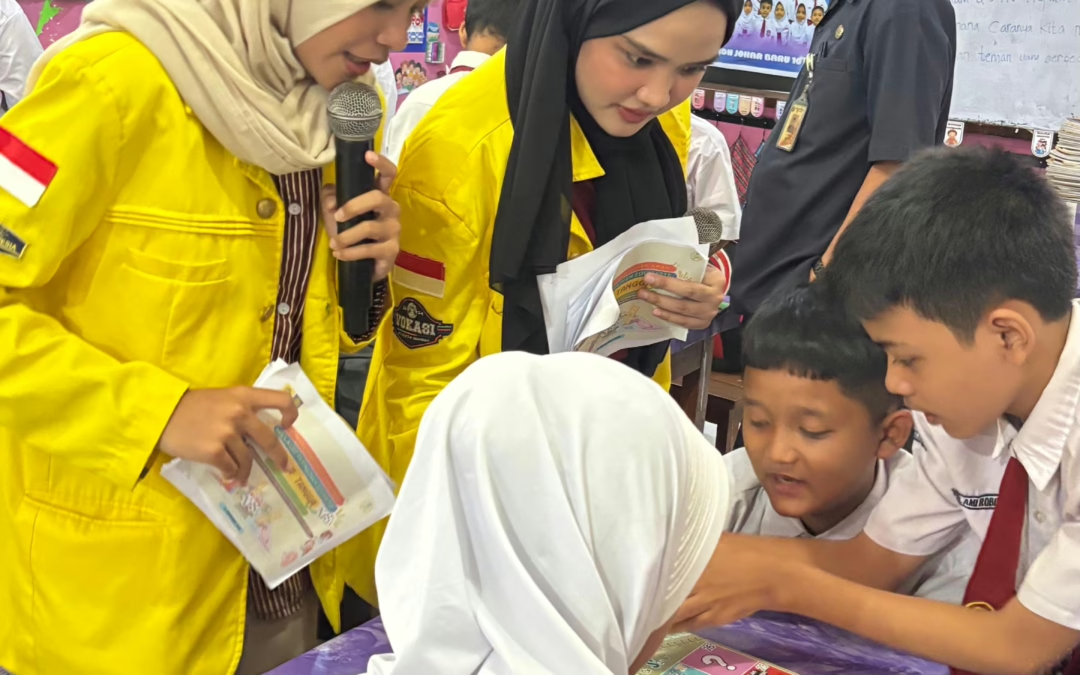Depok-The academic community of the Universitas Indonesia (UI) Vocational Education Program conducted community service activities for 64 students of SDN 10 Pagi Johar Baru, Central Jakarta, to increase children’s awareness of clean and healthy living behavior through the snakes and ladders game.
The activity, which carries the theme “Health Education for Children Through the Educational Game of Snakes and Ladders in Johar Baru District,” is a simple innovation born from academics’ concern for the importance of a healthy lifestyle from an early age, especially in densely populated areas with quite high environmental health challenges.
Data shows that many children in Indonesia still haven’t optimally practiced clean and healthy lifestyles. The 2023 Indonesian Health Survey (SKI) found that only around 48.2 percent of schoolchildren in Indonesia wash their hands properly.
Yulial Hikmah, S.Si., M.Si., as the team leader, emphasized that a fun approach is key to ensuring that health messages truly reach children.
“Through interactive games, children more easily absorb important messages about maintaining personal hygiene, healthy eating, and other hygienic living behaviors. This snakes and ladders game seems simple, but its impact can be significant. We hope they can get used to healthy living from an early age, so they will grow into a healthy generation,” said Yulial.
 (Photo: Presentation of prizes to students who won the Snakes and Ladders Health game)
(Photo: Presentation of prizes to students who won the Snakes and Ladders Health game)
In a specially modified version of the Snakes and Ladders for Health game, each square on the board contains an educational message, ranging from proper handwashing and proper waste disposal to choosing nutritious foods. Before playing, students are also invited to watch an animated film and participate in interactive sessions, ensuring a varied and engaging learning experience.
Snakes and Ladders was chosen because it’s simple, doesn’t require special equipment, and is still familiar to children. Furthermore, a conventional game is more appropriate for the students’ needs. Not all children have access to digital devices, so technology-based games can be less inclusive.
“This traditional game can easily be modified into an educational tool. Children can play in groups, interact, and learn to work together. This not only improves their health but also their social skills,” added Yulial.
The UI Vocational students in attendance also actively acted as facilitators. They accompanied the students throughout the games, fostering warm interactions and serving as peer role models. Their presence created a more engaging and enthusiastic learning atmosphere.
The school also received a positive response. Eka Ratnasari, one of the accompanying teachers, assessed that the method was quite effective in getting the children fully involved.
 (Photo: The atmosphere of the Snakes and Ladders Health game with students of SDN 10 Pagi Johar Baru)
(Photo: The atmosphere of the Snakes and Ladders Health game with students of SDN 10 Pagi Johar Baru)
“They don’t just play, they also learn new, very beneficial things. Activities like this help schools instill healthy habits from an early age, and we hope the children will pass these habits on to their homes and communities,” said Eka.
This community service program demonstrates UI Vocational contribution to implementing the Three Pillars of Higher Education. Furthermore, this initiative supports Sustainable Development Goal (SDG) 3, namely, a Healthy and Prosperous Life.
Through video documentation and the educational games developed, the benefits of this activity are expected to reach a wider audience. For UI Vocational, small steps like rolling dice on a snakes and ladders board can become a major initiative in fostering health awareness from an early age.


